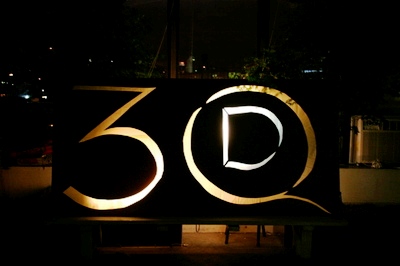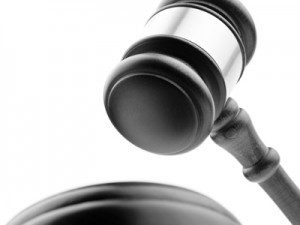 Yesterday at
Yesterday at 3 Quarks Daily,
Thomas Rodham Wells published an article entitled "Internationalise History!". Wells calls for the establishment an international tribunal to identify and punish governments that commit the most egregious historical sins. He suggests it be based on the European Court of Human Rights, and empowered to censure those nations that blatantly propagandize history to further their own ends. Wells states:
History [is] too important to be left to national politicians and their ideological visions of national identity and social engineering projects.
As a historian, his piece got me thinking, and I left a response in the comments section. It was long enough to re-post here as a standalone.
On the one hand, I'd love to wave a magic wand and purge the world of historical propaganda. I think most historians would. But on the other hand, I think the real world practice of history, not to mention international politics, make this impossible, and perhaps rightly so. Here is my response, slightly edited for clarity and style:
While I laud your general aim to eliminate, or at least lessen the propaganda in various government-sponsored histories, I think there are a few problems with your proposal.
First, the methodology practiced by professional historians is not so cut and dried as you imply. It's certainly not akin to scientific methodology as your essay suggests. There will never be "more or less the same" version of history taught everywhere, as is the case with scientific theories. Nor should there be, for several reasons.
Perhaps most important is that the historical record is extremely fragmentary. Unlike scientists, historians cannot manufacture data through observation or experimentation. Rather, they must rely on wha t prior generations of humans left behind, which is typically not much. The further one goes back in time, the fewer facts there are to consult. Many societies left no writing at all. We just don't know nearly as much as we'd like to to. And what we do know is typically slanted through biased documents left behind by the tiny fragment of the population that was literate, and in some instances were outsiders who gravely misunderstood what they were observing, or consciously pushing an agenda.
t prior generations of humans left behind, which is typically not much. The further one goes back in time, the fewer facts there are to consult. Many societies left no writing at all. We just don't know nearly as much as we'd like to to. And what we do know is typically slanted through biased documents left behind by the tiny fragment of the population that was literate, and in some instances were outsiders who gravely misunderstood what they were observing, or consciously pushing an agenda.
Beyond that, history is by nature an interpretive enterprise. After consulting the fragmentary record, historians construct narratives that did not previously exist; after all, does your life actually have a storyline or do you invent one for it?
After creating a narrative, historians then imbue it with their personal interpretations of the past. To extend the metaphor, is the storyline you create about you own life the same one that your mother or brother creates about you? Much less, say, the one your ex creates about you?
It goes without saying that people will never all agree in their interpretations of the present. So why on earth would we expect them to agree in their interpretations of the past, particularly when there is so much less to go on? They don't, not even the people who study it for a living.
The truth is, historians disagree with each other constantly, sometimes quite angrily. No wonder then that historiography (the history of history) is constantly developing, with various interpretations rising and falling. Changing tides of interpretation are partially the result of new evidence occasionally coming to light, but more often stem from the changing cultural morés among practicing historians.
For example, the way professional historians interpret the history of slavery has changed quite dramatically over the last half-century. And the way that history was written before the Civil Rights movement? Today much (though not all) of it would make you shake your head.
What grave mistakes are today's historians committing that future generations will stand agape it? It's hard to know, but one thing's for sure: history does not always look kindly upon history.
Simply put, historians are not like scientists coming to an irrefutable consensus and producing predictive results. We are storytellers and interpreters of the past. Consequently, our findings are subject to debate, and rightly so. Such debate is our lifeblood.
But let's put interpretative punctilio aside for a moment and assume that the goal is simply to come up with a system that punishes propagandistic governments; to censure the most heinous transgressors of fact (for example, holocaust deniers).
While I think we can all agree that such a goal is laudable, I wonder about the practicality of trying to attain it. Even if we could convene some sort of international tribunal to judge such matters, how exactly would you compel rogue nations to join or heed its decisions?
It stands to reason that the most horrid transgressors (I can only imagine how North Korea teaches history) are the least likely to pay attention to such a tribunal. And enforcing judgment on such nations seems unlikely. I just can't imagine other nations further complicating their international relations by pressuring renegade nations on this matter; they ha ve other diplomatic/economic/political priorities that come well before this. And if they did pursue the matter, it would likely be driven by contemporary geopolitical concerns more so than any allegiance to historical truth and accuracy, thereby further complicating matters.
ve other diplomatic/economic/political priorities that come well before this. And if they did pursue the matter, it would likely be driven by contemporary geopolitical concerns more so than any allegiance to historical truth and accuracy, thereby further complicating matters.
And which nations would contribute historians to such a tribunal? Presumably not all 200+ of them. How would historian-judges be selected? No doubt the Korean, Chinese, and Japanese governments are going to want to appoint different scholars to interpret the history of WWII in Asia.
Finally, I would suggest that no nation actually wants such a tribunal to even exist, particularly if it could overcome all of these problems and effectively identify and critique propaganda. Why? Because politicians in every nation, whether democratic or totalitarian, republican or monarchical, manipulate history to legitimize their rule. They always have and probably always will.
Every government has a vested interest in promoting a version of history that points to itself as the righteous successor of the past. Autocrats manipulate and exploit history to justify their thuggishness, while elected politicians do it to garner votes. Thus, governments have less than zero incentive to create such a tribunal. They actually have incentive for it not to exist, lest it expose their own self-serving historical narratives.
So while your proposal, when stripped down to its most basic goal, is laudable, I don't think it's practical, and creating such a tribunal to adjudicate disputes may not even be desirable. In short, the political obstacles seem insurmountable, while the methodological realities of practicing academic history are highly problematic to the endeavor, perhaps fatally so.
Like this:
Like Loading...
Filed under: American History, Culture, Guest Blogger, Politics, Society















